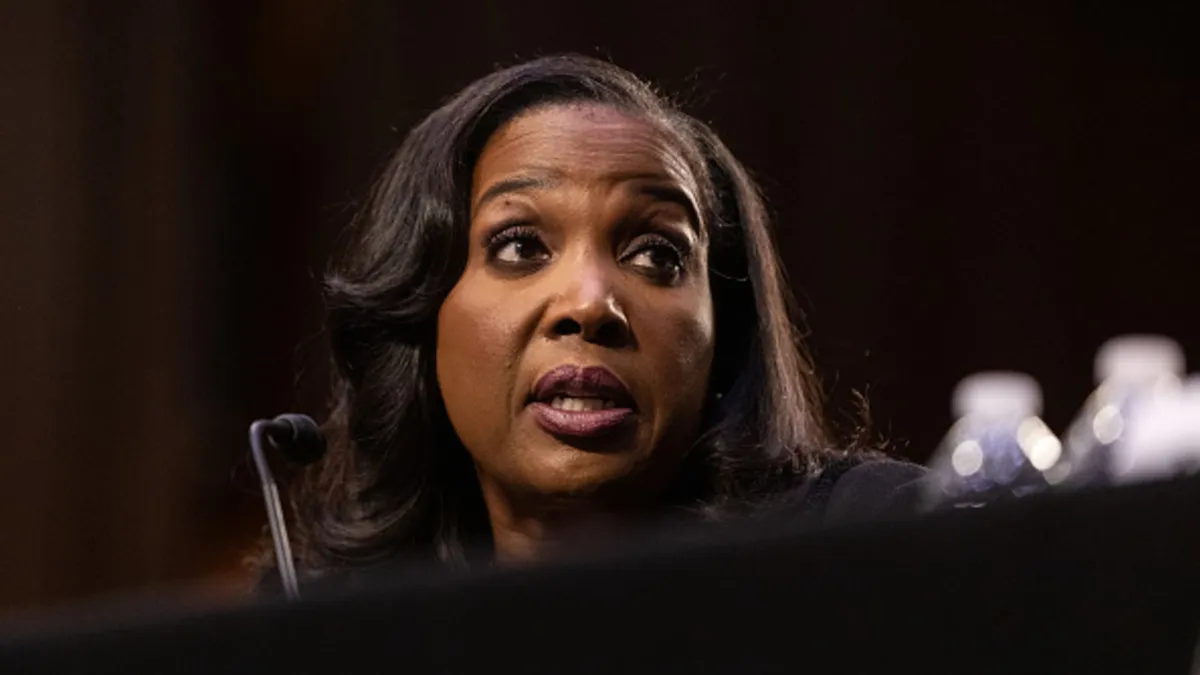
On Thursday, lawyers representing Federal Reserve Governor Lisa Cook filed a compelling argument with the Supreme Court, urging the justices to reject President Donald Trump's request to fire her while her lawsuit challenging this potential removal unfolds. Cook's legal team asserts that Trump's emergency stay application seeks to undermine the independence of the Federal Reserve Board, a critical institution in the U.S. economy.
In late August, President Trump announced his intention to fire Cook, citing unproven allegations of mortgage fraud. Specifically, he claimed she falsely declared two properties as her primary residence. Cook firmly denies these allegations, which pertain to her properties located in Ann Arbor, Michigan, and Atlanta. Trump's legal maneuvering has drawn significant attention, as he seeks to lift lower court orders preventing him from dismissing Cook while her lawsuit is ongoing.
Earlier on the same day, an influential group comprising every living former Federal Reserve chair, along with several former Treasury secretaries and chairs of the White House Council of Economic Advisers, publicly urged the Supreme Court to deny Trump's request. Their collective stance underscores the importance of maintaining the independence of the Federal Reserve, especially in light of the potential implications of Trump's actions.
The Supreme Court may issue a ruling on Trump's request at any time. If the court permits Trump to remove Cook, it could potentially leave the door open for her reinstatement once the justices evaluate the merits of her lawsuit. The crux of Cook's case revolves around the question of whether Trump possesses the legal justifications required by the Federal Reserve Act to dismiss her.
In their filing, Cook's lawyers characterized Trump's allegations as "flimsy" and unsubstantiated, suggesting they were conveniently timed following the President's public criticism of the Federal Reserve's policy decisions. Trump has expressed frustration for months about the Fed's reluctance to cut interest rates to his liking. Notably, just last week, the Federal Reserve reduced its benchmark overnight lending rate by a quarter percentage point, a decision in which Cook actively participated.
Cook's attorneys argue that the President's extraordinary request should be denied, as it contradicts established legal precedents and the longstanding practices surrounding the independence of the Federal Reserve. They contend that this litigation is still in its early stages and that further fact-finding could help avoid the need for the Supreme Court to address the complex legal issues raised in Trump's application.
On the legal merits, Cook's lawyers are optimistic that the Supreme Court will reject Trump's legal theories. They argue that since Cook can only be removed for cause, she is entitled to appropriate notice, the opportunity for a hearing, and judicial review before any dismissal occurs. The lawyers believe that the for-cause standard outlined in the Federal Reserve Act is a vital safeguard for governors like Cook and cannot be overridden by politically motivated allegations.
In their closing remarks, Cook's legal team emphasizes that there must be meaningful checks on the President's authority to remove a Federal Reserve governor. Without such protections, any president could potentially dismiss any governor based on unfounded accusations, undermining the independence that Congress intended to establish for the Federal Reserve Board. The outcome of this case could have significant ramifications for the future governance of the Federal Reserve and the broader financial system.